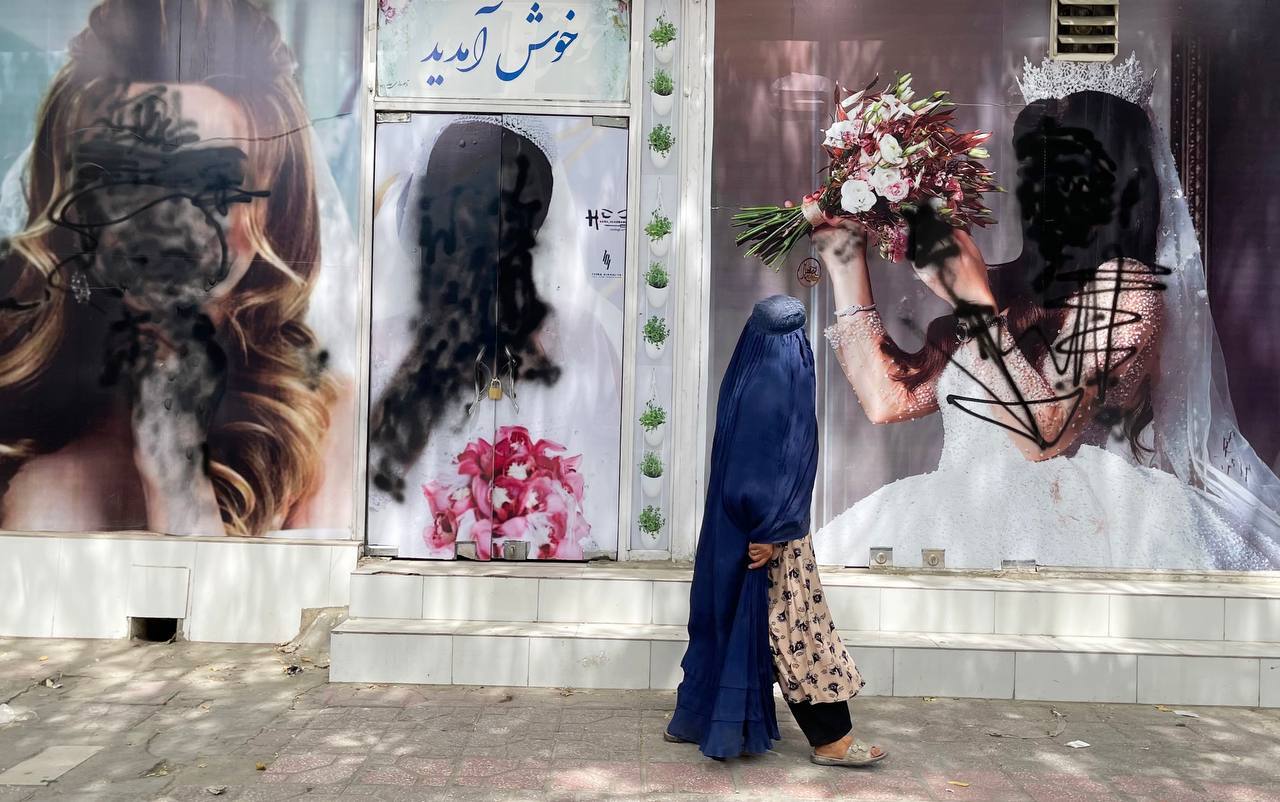Poetry has served as ignition, fuel, and fire throughout many political movements across history, and is particularly prevalent in Afghanistan, where women are finding dignity in written words as their society systematically denies them of such.
Countless publications, websites and other compilations can be found online, sharing Afghan women’s poetry with the world. This phenomenon has only grown over the last three years as poetry has become a conduit through which women can express the degradation that they have experienced since the Taliban’s takeover of Afghanistan in 2021.
Devastatingly, as of last month, the Taliban has banned women from reciting poetry.
Creative writing is one of the most potent ways that these women can capture and share with the world what they have lived through.
To a Western audience, this latest banning might seem trifling given the severity of other Taliban rulings that deny women rights to work, education, and independence. But a ban on women from the art and practice of poetry is soaked in layers of cultural significance and its cruelty cannot be understated.
Afghan women have a deep and culturally rich history intertwined with the creating and sharing of poetry. For Pashtun women in Afghanistan, a specific type of poetry called the landai has been used for thousands of years to express love and grief. Poetry also has historic precedent as a tool of Afghan resistance, with famous war-time female poets such as Malalai of Maiwand. Hence, many women in Afghanistan have grown up reading and writing poetry. The medium has immense sentimental value and symbolises feminine strength. Poetry is a deeply emotional communication tool for many women.

After the fall of Kabul in 2021, poetry has helped women communicate the devastation – from the initial chaos, violence and anxiety about the takeover to the deep isolation, fear, deprivation, and hopelessness that many Afghan women now feel. Creative writing is one of the most potent ways that these women can capture and share with the world what they have lived through – experiences that most people have no personal exposure to.
This method of communication has become more important now as all other formal advocacy tools have been taken away from Afghan women. With the Taliban not a diplomatically recognised government, Afghan women do not have access to platforms to advocate for themselves within the United Nations for instance – remaining invisible at the recent UN General Assembly meeting.
On a personal level, poetry can also be a useful mechanism for processing trauma. Young Afghans today only know an Afghanistan embroiled in conflict, most having personally experienced bombings at the hands of foreign forces and terror attacks at their schools, workplaces or local shops. Now, these women live in a suffocating regime without any meaningful ways out. Afghan women have virtually no access to formalised mental health assistance. Their state-mandated isolation only exacerbates these conditions.
Seemingly small acts of resistance are fundamental to the mental wellbeing and survival of many Afghan women.
So, poetry remains a rare space where these women can reflect, process and feel the trauma they live.
Poetry is also an artform which is highly accessible, with many women using the “notes apps” on their phones to write. Given it has been almost three years in which women have been denied education, poetry also serves as a way to practice language, particularly English.
In spite of the ban, poetry continues to be written and shared across WhatsApp groups and Instagram feeds from women in Afghanistan. These seemingly small acts of resistance are fundamental to the mental wellbeing and survival of many Afghan women who have lost all other access to independence and public voice.
While the Taliban claims that it is acting on Afghan culture, by banning women’s access to poetry it is acting completely antithetical to this claim. Such a cruel contradiction is well described in the following poem by Afghan poet Nargis Payenda:
I would die,
When my nights and days are gone with the wind
I would die,
When the panic of my heart floating around
I would die,
When the sorrows of my heart runs out into my poems
I would die
When the ray of sun depicts the colour of my eyes
I would die,
When the wind is the only voice that I can hear
And I would die,
When I see glowing the last star in the near dawn.

